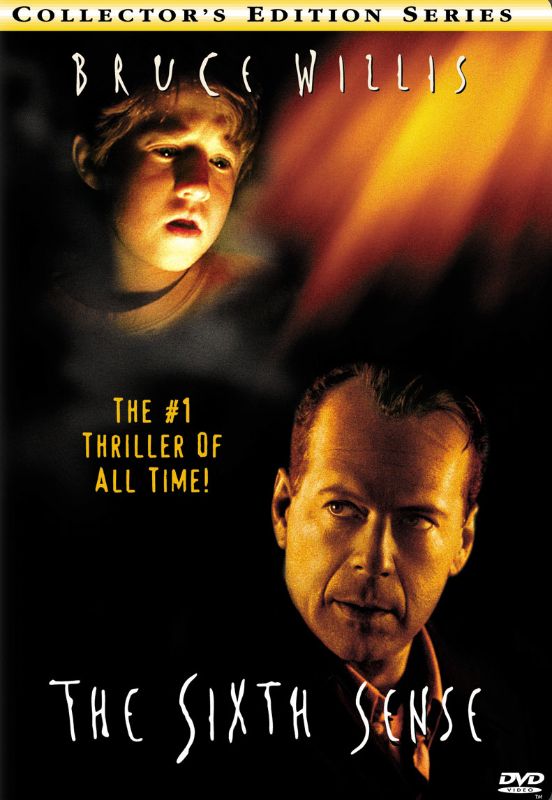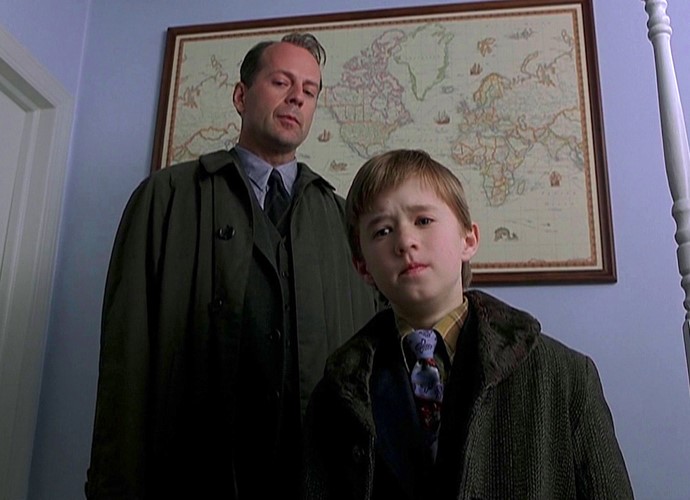Has a single film ever fundamentally reshaped the landscape of suspense cinema, leaving an indelible mark on both audiences and the industry itself? "The Sixth Sense," M. Night Shyamalan's 1999 masterpiece, didn't just scare viewers; it redefined the psychological thriller, launching a career and captivating a generation with its masterful storytelling and haunting atmosphere.
Shyamalan, a name synonymous with unexpected twists and chilling narratives, burst onto the scene with a directorial debut that transcended expectations. The film, a chilling ghost story rooted in the human psyche, became an instant cultural phenomenon. It wasn't just a commercial success; it was a cinematic triumph, a film that burrowed its way into the collective consciousness and continues to spark conversation and analysis decades later. "The Sixth Sense" proved that horror could be more than jump scares; it could be a profound exploration of grief, trauma, and the search for meaning in the face of the unknown. The film's ability to do this, combined with its memorable performances and iconic imagery, solidified its place as a modern classic. Moreover, the film's exploration of themes like communication with the dead and the burden of unspoken truths resonated deeply with audiences, making it a truly unforgettable cinematic experience.
| Category | Details |
|---|---|
| Full Name | Manoj Nelliyattu Shyamalan |
| Date of Birth | August 6, 1970 |
| Place of Birth | Mah, India |
| Nationality | American |
| Occupation | Filmmaker, Actor, Screenwriter, Producer |
| Known For | "The Sixth Sense," "Unbreakable," "Signs," "The Village," "Split" |
| Notable Awards | Nominated for two Academy Awards, various other nominations and wins for directing and writing. |
| Education | New York University (BFA in Film) |
| Spouse | Bhavna Vaswani |
| Children | 3 |
| Early Life and Background | Born in India, moved to the US at a young age and raised in Pennsylvania; developed an early passion for filmmaking. |
Reference: IMDB - M. Night Shyamalan
Shyamalans influence extends far beyond the financial success and critical acclaim of "The Sixth Sense." His narrative style, characterized by unexpected turns and a commitment to genre-bending storytelling, has profoundly influenced a generation of filmmakers. The film's impact also extends to the evolution of marketing and audience engagement in cinema. The secrecy surrounding the pivotal twist created a unique buzz, encouraging audiences to experience the film with minimal spoilers, a tactic that became increasingly common in the years that followed.
The film's impact is a testament to the power of a well-crafted story, exceptional performances, and innovative direction. The films ability to blend elements of horror, suspense, and human drama elevated it beyond a simple genre exercise, transforming it into a work of art. This multifaceted approach allowed the film to resonate with a broad audience, ensuring its enduring appeal. "The Sixth Sense" continues to be studied and admired for its technical achievements, including the use of cinematography, sound design, and editing to create a palpable sense of unease and dread.
Before the dominance of the Marvel Cinematic Universe, Shyamalans "Unbreakable" offered a unique, character-driven exploration of superhero mythology. This film, released in 2000, brought together Bruce Willis and Samuel L. Jackson, offering a fresh perspective on discovering extraordinary abilities. "Unbreakable" marked a departure from traditional superhero narratives, focusing instead on the emotional realities of possessing such powers. The film's slow-burn approach and emphasis on character development set it apart, influencing the subsequent evolution of the genre. It was a sophisticated take on superhero lore, offering a more grounded and humanistic exploration than many of its contemporaries.
The film's success wasn't solely due to its plot; it was a collective effort. The film's director's, Shyamalans creative vision, combined with exceptional performances, contributed to its lasting power. Bruce Willis, in one of the most acclaimed roles of his career, delivered a nuanced performance. Haley Joel Osment, as the young boy who sees dead people, gave a performance that remains iconic. The supporting cast, including Toni Collette, Eugene Osment, and Olivia Williams, contributed to the film's richness and emotional depth. The chemistry among the actors created a believable and compelling narrative. The film's ability to balance moments of genuine terror with heartwarming scenes made it a captivating experience for audiences of all kinds.
The film's narrative structure is a masterpiece of suspense. The screenplay, written by Shyamalan himself, carefully lays the groundwork for the ultimate revelation. The story follows child psychologist Malcolm Crowe, who attempts to help a young boy, Cole Sear, deal with his ability to see dead people. The film's slow, deliberate pacing builds tension, creating a sense of unease that permeates the entire experience. The writer's skilled writing, coupled with Shyamalan's direction, makes the twist ending a genuinely shocking and unforgettable moment.
The movie's production details are important to understand its overall success. The film's budget was relatively modest, yet it grossed over $500 million worldwide, becoming a cultural phenomenon. This success underscored the value of strong storytelling and directorial vision. The film was nominated for six Academy Awards, including Best Picture and Best Director, further cementing its critical acclaim. This recognition brought the film into mainstream culture, with its iconic imagery and quotable lines becoming instantly recognizable and often referenced. The film's ability to resonate with audiences across cultures and demographics is a testament to its universal themes and masterful execution.
The film's influence extends to the way audiences experience and discuss films. The secrecy surrounding the ending of "The Sixth Sense" became a key marketing tool, encouraging viewers to avoid spoilers and experience the film with fresh eyes. This marked a shift in how studios approached the promotion of their projects, with a greater emphasis on protecting narrative twists. The film's impact on popular culture is substantial; its memorable lines and imagery have been parodied, referenced, and adapted countless times, and the film continues to be a subject of discussion and analysis. Its success paved the way for other films that would incorporate supernatural elements and psychological depth, establishing Shyamalan as a leading figure in the genre.
The film also served as a launching pad for several careers, including that of Haley Joel Osment, who became a major child actor following his role in "The Sixth Sense." M. Night Shyamalan himself went on to direct a string of successful films, further establishing his reputation as a visionary filmmaker. The film's success was a turning point for Shyamalan, opening doors and giving him the creative freedom to pursue his unique brand of storytelling. His directorial choices, with the cinematography and sound design, played a crucial role in setting the film's tone and mood. This included his ability to create visual storytelling that was both haunting and beautiful. The film's use of color, lighting, and camera angles contributed to the sense of unease and dread that permeated the film.
The film's lasting impact extends beyond the screen. It sparked discussions about grief, loss, and the nature of the afterlife. The film's exploration of these universal themes helped it resonate with audiences on a deeper level. The film's success also paved the way for other films that would delve into similar subjects, continuing the exploration of these complex and enduring themes. The film's legacy is a testament to the power of a well-told story, outstanding performances, and visionary direction. It reminds us of the enduring appeal of suspenseful storytelling and the importance of human connection, even in the face of the unknown.
In conclusion, "The Sixth Sense" wasn't just a film; it was a cultural event, a cinematic milestone that continues to captivate and influence. It is a reminder that a compelling story, combined with great performances and innovative direction, can leave an everlasting mark on the landscape of cinema. This film changed perceptions of the horror genre and established Shyamalan as a master of suspense, leaving behind a legacy that extends far beyond the screen.


